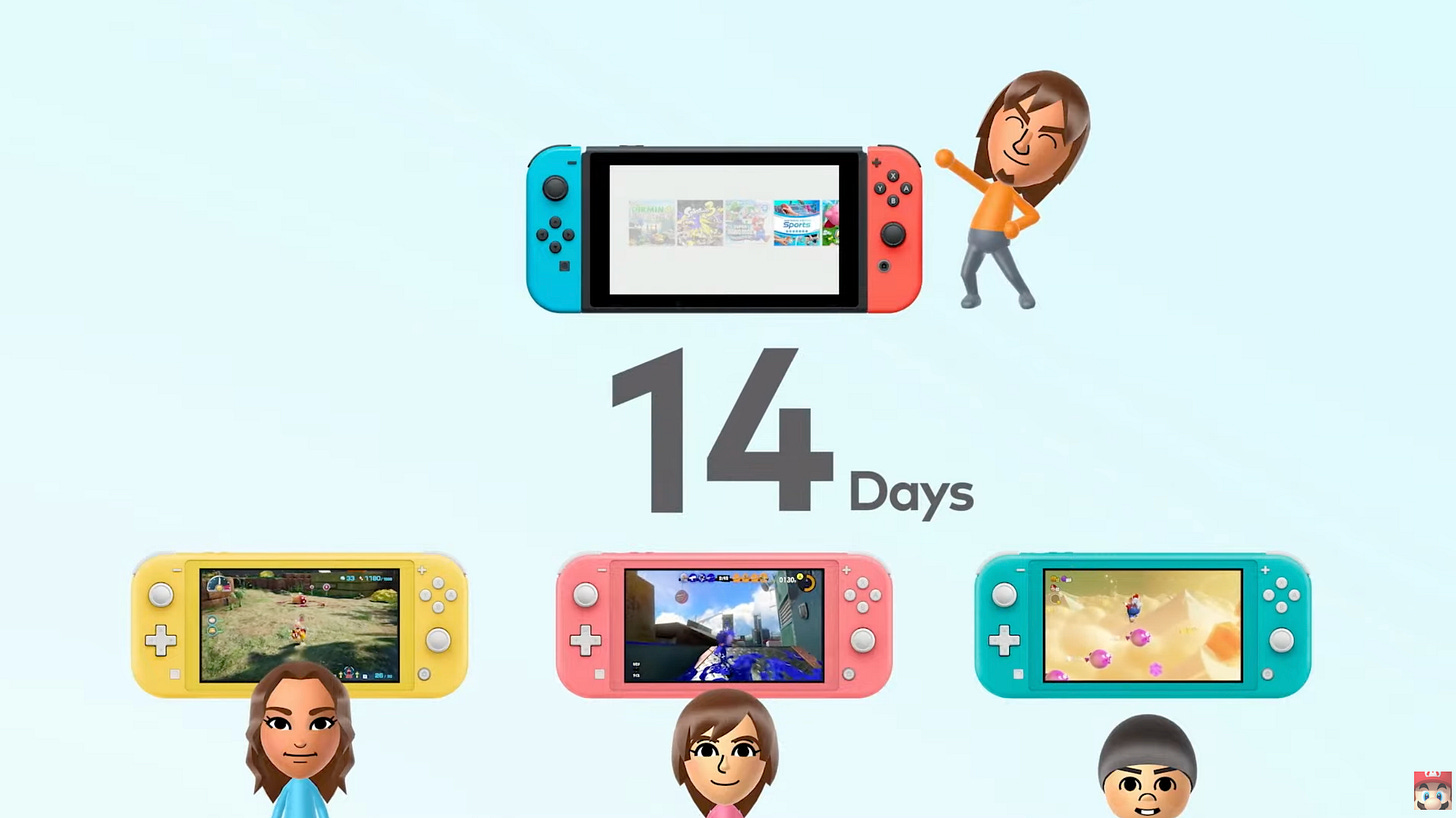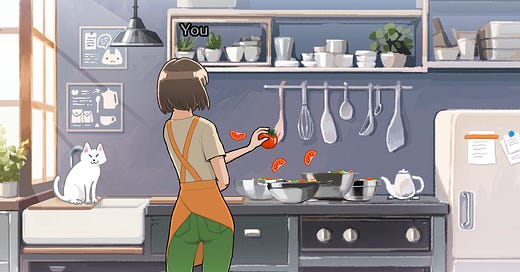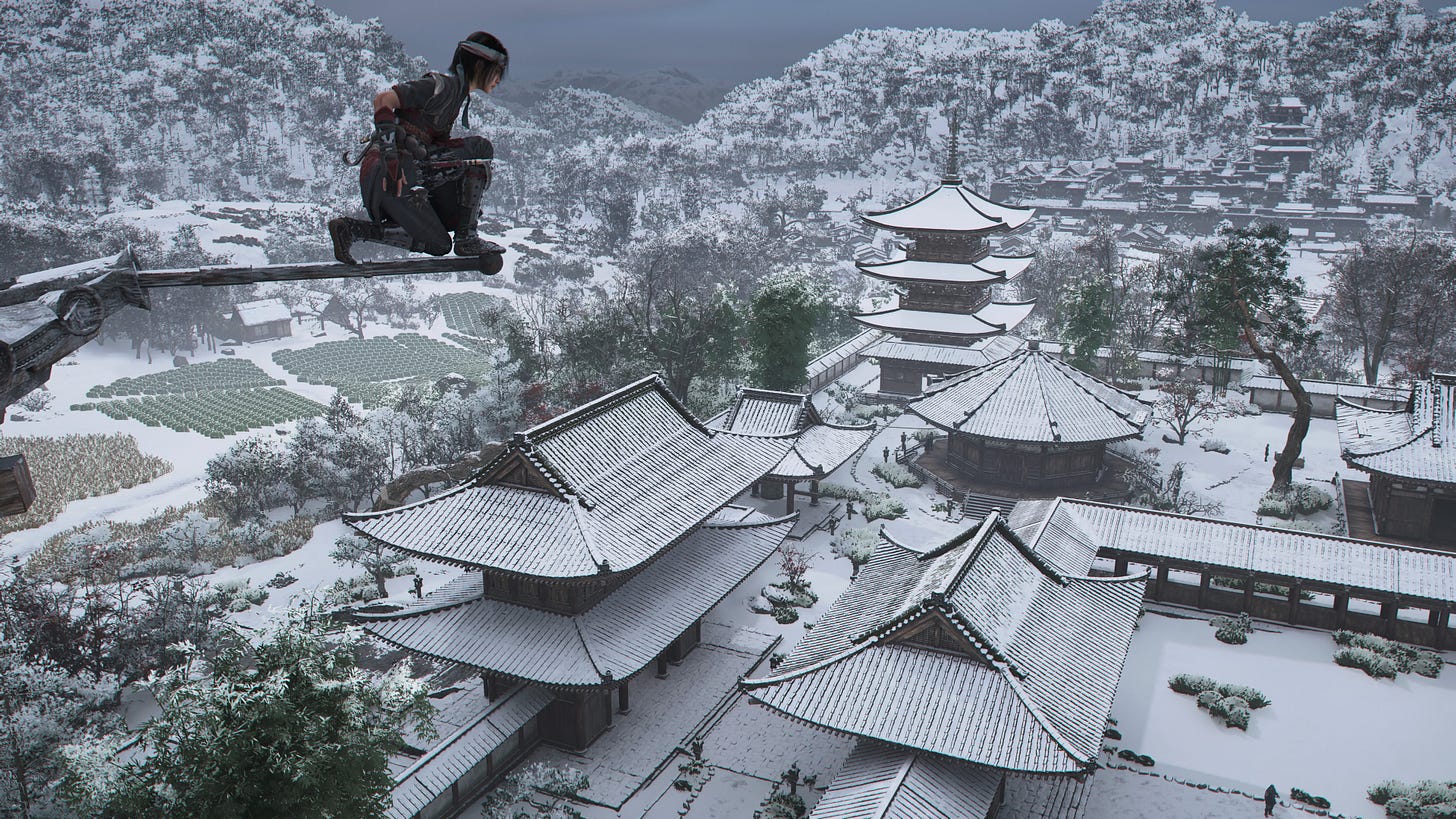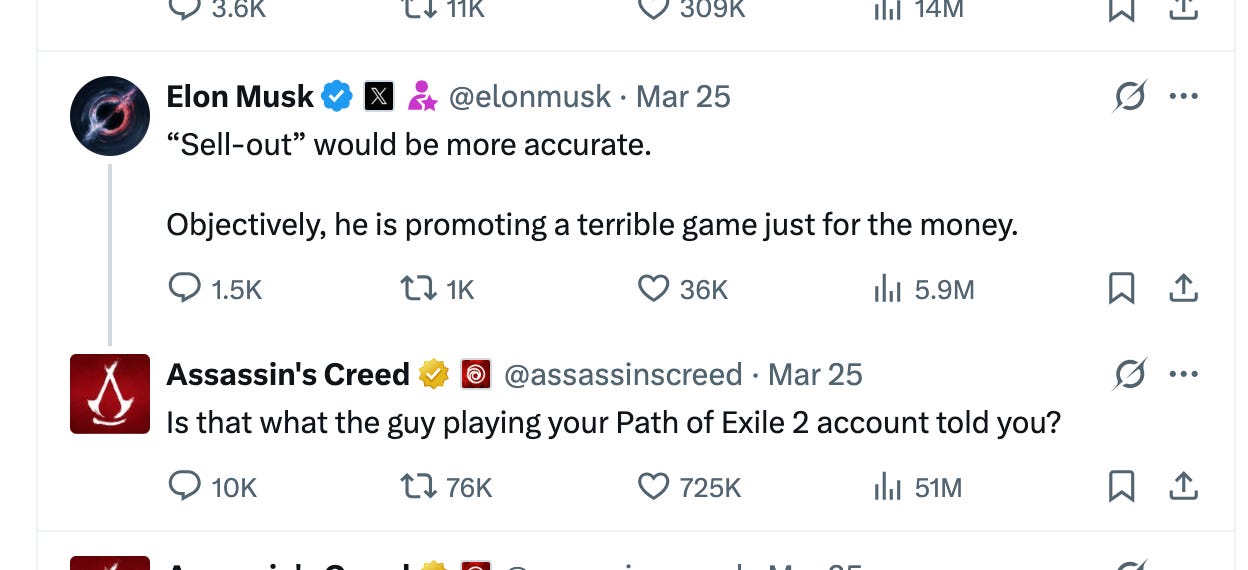A reasonable person may have expected Nintendo to be out of the headlines this week. The company is slated to make a massive splash next week with a proper April 2 globally live-streamed reveal of the Nintendo Switch 2’s gaming line-up—followed by a kick-off of worldwide events where the public can use the later-in-2025 system.
But then they announced yesterday that there would be a Nintendo Direct today. It would be a half-hour showcase of games for the original Switch.
Today’s event was a strange one, notable for two unusual announcements from Nintendo that didn’t directly involve new video games.
The first: Virtual game cards, the kind of thing you announce ahead of a lot of households becoming multi-Switch homes
Nintendo revealed a new game-sharing (slash digital rights management) system for digitally purchased games: the Virtual Game Card.
The system sets some new parameters for how digital games can be used on a user’s secondary devices and among a “family” group.
Two things to bear in mind, both of which demonstrate that this is a prime time for Nintendo to care how its customers use their digital games:
From April through December of 2024, more than half of the games sold by Nintendo were sold digitally. As with other publishers, digital sales are a growing percentage of their business.
Nintendo is weeks/months away from launching the Switch 2, which is backwards compatible with the original Switch and is likely to turn a lot of households that own one or two Switches into homes that have two or three, with the old-gen units becoming hand-me-downs. People are going to want to manage their games across those systems.
Under the new game-sharing plan announced by Nintendo today, if a Switch owner buys a digital game, they’ll see it manifest as a Virtual Game Card that they can virtually load or eject from any of two systems tied to their Nintendo account.
A Switch owner can also share their digital game cards with up to seven other Nintendo account users who are part of a family group, with two key limits: 1) only one game can be loaned out to a family member at a time and 2) the loans terminate after two weeks and revert back to the main user.
These changes will kick in after a Switch firmware update in April.

Currently, a Switch owner can buy a digital game via a Nintendo account, download it to multiple systems tied to their account, but can only load the game on their primary, or home, system without worrying about a DRM check. On any secondary system, loading the game requires an internet check, and Nintendo will prevent play if it detects the game is being played on another system at that time. People can use this system to access their games across devices or as a workaround to grant a second user access to a game they paid as much for as they would if it were on a cartridge.
I originally interpreted Nintendo’s new virtual game card system as a de facto tightening of its rules, akin to Netflix’s investor-pleasing crackdown on password-sharing. I’m not sure, though, as the family sharing part of things does seem to add more sharing options rather than take away. Previously, families with digital games may have resorted to make-shift solutions, such as putting a parent’s account on a kid’s system. Now they can actually share a digital game to the kid’s account. (Patrick Klepek has a great explanation about this over at Crossplay.)
Shame on me for my cynicism? Polygon’s Oli Welsh was ebullient today about the changes. He wrote: “As a member of a family with multiple Switch players, I can confirm that this is a literally life-changing update, despite the restrictions Nintendo has placed on it.”
It does seem like Nintendo’s moves have been made in anticipation of Switch 2 households wanting to transport games to the new system and to share games with older Switch units. They’ll be able to do that, but with some limits that could a bit of pressure to just buy second copies of some digital games.
Very important caveat: If you like the old way that Nintendo’s digital games worked, you can keep it. A Nintendo rep told Game File: “We think many people will enjoy the benefits of virtual game card, but it is an optional feature, and the original method can be used instead.”
The second strange Direct announcement: Nintendo’s new news app, which certainly fits Nintendo’s current mobile strategy
The boldest non-game announcement to ever close a video game showcase event is probably Microsoft’s E3 2008 surprise that the Xbox 360 was going to be able to stream Netflix movies (this was a wild concept at the time!).
The strangest just might be today’s Nintendo Direct ender, with legendary Mario and Donkey Kong creator Shigeru Miyamoto appearing to announce the immediate release of a phone app called Nintendo Today!
It’s a calendar and news app from Nintendo and its mobile partner DeNA, and… yeah. Nintendo doesn’t announce games for mobile phones anymore, just music and news apps.
The obvious motivation here is to be able to drive up installations on phones and use the ubiquitous handhelds to ping the public about Nintendo news.
They’ll have a lot of Switch 2 news to promote next week.
(Less obvious, is that Nintendo might be trying to help out me. Yes, doing it personally for me. The “News” feed on my Nintendo Switch has been stuck on Nintendo posts from June 2023. No idea why. But now I can keep up via my phone!)
Other Nintendo Direct announcements and takeaways:
Western publishers all but no-showed. The massive customer base of the Switch, one of the most successful game devices of all time, convinced even the most skeptical publishers to release games on Nintendo’s hybrid handheld/console, but the relatively low specs of the device (now running chips that are essentially a decade old) never made the machine a great fit for western game publishers’ perpetual push for high-end graphics. It was therefore fitting that today’s Direct, likely the last to mostly focus on the original Switch, was stuffed with games from Japanese publishers, western indies and Nintendo itself—all parties who never built business models dependent on selling games running on cutting edge tech. Among today’s games, a port of two PSP games and a “reimagining” of a DS title. It’s a safe bet that western publishers will show back up next week for the Switch 2 showcase. That’ll have more of the horsepower they like.
Pac-Man’s edgy now. A game called Shadow Labyrinth was a Direct stand-out. It puts Pac-Man in a grim side-scrolling fantasy adventure that looks a bit like a Metroid game. Sure, why not?
Nintendo was vague with release dates for games it is publishing. Pokémon Legends Z-A maintained its “late 2025” release window, the newly announced Tomodachi Life: Living the Dream got a 2026 window (yes, Nintendo will still release Switch 1 games in 2026). Metroid Prime 4: Beyond, a leading contender for being a hybrid Switch/Switch 2 launch game (just speculating: with better graphics when running on Switch 2) simply held its “2025” release date. Perhaps being more specific would have given something away.
A new Rhythm Heaven game, Rhythm Heaven Groove, was announced for 2026, extending the excellent musical series’ pattern of launching at the twilight of a Nintendo system’s existence. Rhythm Heaven Fever launched on the Wii in North America in 2012, nine months before the Wii U’s debut. Rhythm Heaven Megamix debuted on the 3DS in mid-2016, not quite at the end of the system’s existence (the 3DS debuted in 2011 and got its final games from Nintendo in 2019), but just as Nintendo was beginning to shift to the 2017 Switch and wind down support for dedicated handhelds.
Item 2: Ubisoft splits up but sort of doesn’t
Ubisoft announced today the creation of a new subsidiary that will manage and develop its three biggest gaming brands: Assassin’s Creed, Far Cry and Rainbow Six.
The new entity, which Ubisoft did not name1, will have its own management team, but will be controlled by Ubisoft, company execs told investors today. It’ll have “a worldwide, exclusive, irrevocable, perpetual license” from Ubisoft for the three series and will pay a royalty.
The big difference is that this new group is getting a $1.25 billion investment from Tencent, the same company that tried to help stabilize Ubisoft in recent years with minority investments in the company and in the Guillemot family company that has the biggest stake (and most of the board seats) in Ubisoft.
Tencent will have a 25% stake of the new entity, and Ubisoft is ensured to have the majority voting rights and ownership stake for two years.
Several big Ubisoft studios are set to be positioned partially or fully within the new subsidiary. Per a press release:
The new subsidiary would include the teams developing the Tom Clancy’s Rainbow Six, Assassin’s Creed and Far Cry franchises based in Montréal, Quebec, Sherbrooke, Saguenay, Barcelona, and Sofia as well as the back-catalog and any new games currently under development or to be developed.
In a call with investors, Ubisoft management said it was too early to talk about headcounts for the new group, nor did they say much about the future of the legacy Ubisoft company, beyond that it’ll manage some other big franchises, including Ghost Recon and The Division (for those wondering, zero mention of some other series, including For Honor, The Crew and Just Dance).
All of this follows the well-chronicled calamitous past half-decade for Ubisoft a saga that has included workplace scandals, a global pandemic, a massive slowdown in franchise releases, a series of big-budget flops and, in a turn for the better, last week’s launch of the very enjoyable Assassin’s Creed Shadows, which Ubisoft said today has reached over three million players (not an exact number of copies sold, mind you).
In a company-wide email seen by Game File, Ubisoft CEO Yves Guillemot told his employees that the Tencent investment and new subsidiary…
“…will also give us the means to accelerate the changes we’ve been discussing for several months across the group – changes that many of you have been longing for, as revealed by the Ubisoft XP survey. These changes are in line with the initiatives that Marie-Sophie [de Waubert, Ubisoft’s studios chief] has been sharing recently, which aim to put the creation of unique games and player satisfaction back at the heart of our daily work. This is what will enable us to return to a higher level of profitability.“
In a call with investors, Ubisoft chief financial officer Frederick Duguet called the creation of the new entity, which will be finalized later this year, “an acceleration in our transformation.” He added; “We will be streamlining the operating model in the months to come.” He offered no details about what such “streamlining “ would entail.
In other Ubisoft news, Game File readers may recall that Elon Musk said last spring that Assassin’s Creed Shadows’ Black samurai was proof that “DEI kills art.” Readers may also recall that AC franchise executive producer Marc-Alexis Côté, speaking to Game File last June, said that comment “generated emotions,” but that he resisted the urge to verbally punch back.
Well, Musk has finally received a receipt from Ubisoft.
After Musk referred to ACS this week as a “terrible game,” the Assassin’s Creed Twitter/X account replied: “Is that what the guy playing your Path of Exile 2 account told you?”
That’s a reference to Musk enlisting other players to level up his gaming characters for him.
The Ubisoft tweet racked up 51 million views on Musk’s own social media platform, and drew 725,000 likes, with many people reacting by saying that the retort made them want to buy the game.
Item 3: Japanese game companies surge
Last week, I shared anecdote from Game Developers Conference, where a developer from a Japanese game company told me he was having trouble relating to the “doom and gloom” among GDC attendees, given how gaming was thriving back home.
Bolstering that point this week is Serkan Toto, an expert on the Japanese game industry, who pointed out that five of Japan’s biggest gaming stocks—Sony, Nintendo, Konami, Capcom and Bandai Namco—have hit record highs since February.
“While things do not look great for many studios in the West, things are very different in Japan,” he wrote, in a succinct report about the diverging fortunes of studios in Japan vs. the west.
He continued:
There are certain macro trends playing a major role here (political initiatives like corporate governance reforms in Japan, weakness of other Asian stock markets like China, currency effects, etc.), but the five aforementioned AAA game companies have been doing their homework and performing very well financially over the last few years.
Item 4: In brief…
🎮 Embracer-owned studio Crystal Dynamics (working on a new Tomb Raider and co-developing Perfect Dark with Microsoft) is laying off 17 workers “to better align our current business needs and the studio's future success,” Eurogamer reports.
🤔 CD Projekt RED’s stock dropped 13% this week seemingly because the company made it clear that The Witcher IV won’t be out until after 2026.
Gaming prof/expert/Substacker Joost van Dreunen writes that the drop: “illustrates the persistent valuation disconnect between financial markets and gaming's creative reality.”
🚫 GameStop is more of a seller of collectibles these days, less so games, Sherwood Media notes.
👀A Discord IPO is right around the corner, Bloomberg reports.
⚾️ My son hit five home runs in five at bats in MLB The Show 25 last night.
He was playing as Juan Soto.
Can we workshop a name a little? Franchise acronym… ACFCTCR6? Doesn’t work. How about a franchise name amalgamation? Far Creed 6? Needs a little more. Maybe.. Rainbow Assassin Crysoft. Yeah, that’ll do. I bet they go with that.








Be right back, need to go buy Shadows again to support their fearless marketing team.
If they don't name the subsidiary Ubihard, what are we even doing here.
Yikes, Nintendo's family sharing setup is awful! I didn't realise, as we only have a single Switch so it's never come up.
We do have a couple of Steam Decks and a desktop PC, though, and it's so easy to manage this stuff on Steam. Set up a family, and your entire game library is available to everyone in the family. You can't play the same game at the same time, but otherwise there are no real caveats. It's just very easy and simple.
Oh, plus everyone gets free cloud saves and multiplayer access.
For such a family-focused company, it's weirdly draconian from Nintendo.